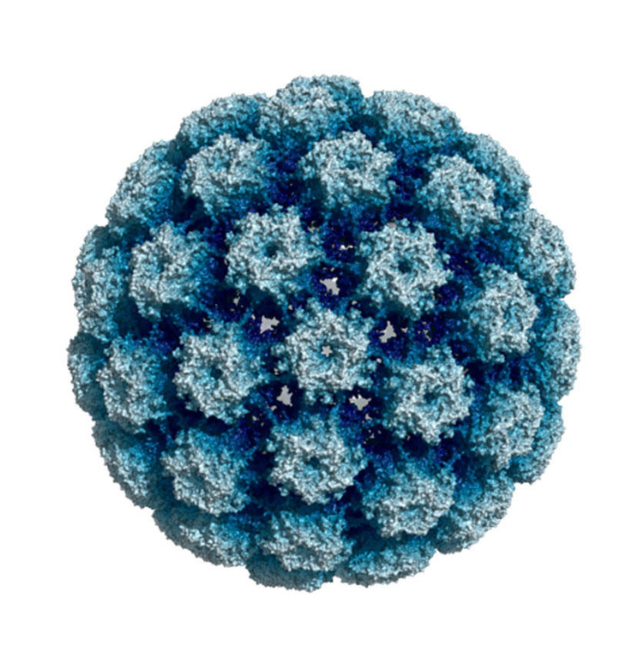HPV 16 Variants Associated with Prognosis for Oropharyngeal Cancer
, by Jennifer K. Loukissas, M.P.P.
Using whole-genome sequencing of viral DNA extracted from human papillomavirus 16-positive oropharyngeal cancers (HPV-OPC), Lisa Mirabello, Ph.D., M.S., senior investigator in the Clinical Genetics Branch, and colleagues, found eight viral variants to be strongly associated with prognosis. The research, conducted in collaboration with the University of Kentucky, was published online on March 16, 2022, in Annals of Oncology.
Median survival for patients with one or more of the eight high-risk viral variants was a little less than four years, compared with nearly 19 years for patients without any high-risk variant. Including HPV 16 variant information significantly improved the ability to predict HPV-OPC patient survival beyond traditional risk factors such as age, cancer stage, treatment, and smoking history alone.
Incidence of HPV-OPC has been increasing in the United States; HPV is now responsible for ∼75 percent of all OPCs. Approximately 90 percent of HPV-OPC cases are caused by HPV 16.
Many of the variants and viral gene regions identified in this study have been previously implicated in HPV carcinogenesis, up-regulation of HPV viral gene expression, and immune system evasion—all of which may explain the poorer prognosis associated with these variants. Future laboratory investigations are needed to determine exactly how these variants may contribute to more aggressive disease.
Reference Kuhs KAL, et al. Genetic variation within the human papillomavirus type 16 genome is associated with oropharyngeal cancer prognosis. Annals of Oncology. 2022
